- Home
- Sharyn McCrumb
The Rosewood Casket Page 2
The Rosewood Casket Read online
Page 2
They won the battle. Perhaps the sight of a raging woman warrior charging their ranks had caused the enemy to hesitate for just a moment too long. Or perhaps both sides believed that the Spirit Warriors must be fighting alongside this girl to make her shots ring true and to keep her unharmed in the heat of battle.
The Cherokee fighters went home with high praise for the young woman who had fought well, and when the decades-old war with the Muskogeans ended soon after, the tribal council at Chota and the clan spokesman declared that young Nanyehi should become the Ghighau.
The young girl’s honor had become a mature woman’s burden, for the world itself had become a shapechanger these days, and the advice of the Ghighau could now mean life or death for all of the people. She sat next to the council fire, and by raising the swan’s wing, she could pass judgment or overrule decisions made by the entire council. What if the gods who spoke through her were mistaken? Surely these alien white settlers were strange, even to them.
The whites had signed a treaty, promising to leave the hunting lands to the Indians. No settlers would make farms in the mountain hunting lands. They swore it in words on a piece of paper. But Nanyehi had taken one of the whites for her second husband, a trader called Bryant Ward, and Nanyehi became Nancy. People said that Ward had married her because the Cherokee refused to let a white trader stay long in their land unless he married into the tribe. Well, perhaps the Ghighau had married the Irishman in order to understand the ways of the whites. He was not a young man or as handsome as Kingfisher—and most important, he did not respect females as her people did. He had a strange idea that women should be like servants, and he thought that the Creator had wished such a thing. How Selu must have smiled at that! Bryant Ward and the Ghighau had a child, Elizabeth, but the union did not last.
Nancy Ward learned much from this husband, however. She learned that his tribe numbered as many as all the trees on all the mountains, while the Cherokee were few. The whites, with their guns and their horses, and their strange ways, would not go away some day, as the Muskogeans had done. Between the whites and the Cherokee it was not war; it was water falling upon stone. The stone is hard and ancient, yes; but the ceaseless water eventually wears it away. Nancy Ward knew that fighting the tide of settlers would only kill her people needlessly, and still the stream of whites would come. She counseled living in peace with the newcomers.
Learn their ways, she would say, each time the Red Chief argued for war. Learn to spin, to plow. She herself studied the trading practices of the white settlers. She studied farming and acquired horses and a herd of cattle. If we become as they are, they will accept us, and we can all live in peace, she reasoned.
The meeting at Sycamore Shoals in March of 1775 told her that she was wrong, but she did not want to believe it. More than a thousand Cherokee, led by the great chief Little Carpenter and his son Dragging Canoe had camped beside the Watauga River at Sycamore Shoals, in the heart of the white settlement area. Daniel Boone was there, speaking for those of his people who wanted to claim the lands to the west. He had explored the far country, and, speaking through mixed-breed interpreters, Boone and his men explained that they wanted to buy the land.
They brought six wagonloads of trade goods and spread them out on blankets, inviting the Cherokee to take what they wanted in exchange for possession of that far-off place.
The younger warriors were bewitched by the woolen goods and the glass beads, and even more so by the rifles and cases of whiskey offered in the bargain. They fingered the goods, murmuring to one another, “Why not sell the western land to these men? After all, it does not belong to us. Let us sell them the sun as well, if they want it.” And they laughed. What fools would give good rifles and blankets to pay for something that cannot be bought, that the Cherokee did not have to give? Why not take the white man’s offerings and promise them whatever words they wished to hear in exchange? Where was the harm in words?
The older chiefs had agreed to sign the document, fearing to deny the young warriors the rifles and spirits they were determined to have. Sign or face revolt within the ranks, the chiefs had reasoned. But old Oconostota, the war chief, warned the whites that his people made no claim to the lands beyond the Cumberlands. They were giving away what was not theirs to give, he cautioned the settlers. Even so, Dragging Canoe had argued against the treaty, saying that if the whites were given the land in Kentucky, they would some day want the land in between as well—the land of the Cherokee. He stamped his foot in rage when the whites asked for a “path grant,” permission to make a road through Cherokee territory so that they could reach their newly bought lands in Kentucky. “We give you from this place!” he said, pointing west.
Finally the agreement was signed, and the path grant was given, but as the two sides parted, Oconostota shook the hand of Daniel Boone, and told him, “We have given you a good land, my brother, but I believe that you will have much trouble settling it.”
Dragging Canoe waited, and his anger grew.
One year later—spring of 1776—the whites were in a war with England. Knowing of the Cherokees’ distrust of the settlers, the British approached them. If they and the other tribes of the federation would take the British side in the fighting, they could drive the settlers from their lands. “Your lands will be returned to you,” the Englishmen promised.
The leaders gathered at Chota to discuss this plan: the Shawnee, the Delaware, the Mingo, the Iroquois, and the Mohawk. Many of the elders spoke against this plan for war.
“Do not do this,” said Nancy Ward. “We are beginning to learn to live together in peace.”
But Dragging Canoe scoffed at the old men who could no longer fight, and at the Ghighau, an old woman who had even married a white man once. Only he could guard the ways of his people, he said. “There is nothing left but the bloody path.”
Years had passed now, and she still wondered if she had done the right thing. Was she a traitor to her people, as Dragging Canoe had called her, or did she save many lives and prevent worse tragedy?
She had meant well. She had meant to stop the slaughter of both Cherokee and whites, and yet many died. She had meant to forge a peace between the two peoples that would allow them to share the land, so that the Cherokee might stay in the mountains of their ancestors. But that would not happen. Although she would not live to see her people in exile, she knew that the day would not be long in coming. Now it was too late for war: the whites outnumbered the stars, and their armies were invincible. Had they not twice won in war against their British masters? What chance would the Cherokee have against such might? The days when Dragging Canoe could dream of victory were gone. They might yearn to go back to a time when the land was theirs, but not even the bravest young warrior believed that such a thing could be. Their sun was setting. The old woman was glad that she would not live to see the night.
Nancy Ward—Nanyehi—was old. Soon she would go to the Darkened Land, her soul traveling westward to the lands of the dead to begin its afterlife. The Cherokee nation, too, would be traveling westward soon, moving on to new lands to begin a new life as a people, as more settlers poured into the mountains needing acreage for their crops and their livestock. Gold had been discovered in the mountains underhill. The white men prized gold even more than they loved land. It would not be long now.
She must go, and her people must go. Now the new race would have the forests and the mountains beloved of Selu and Kanati. It was their time. But their time, too, would pass. She knew that someday the settlers’ descendants would lose the land as well. Then they would know the sorrow of leaving a place that was part of you. She wondered what manner of people would come after them.
CHAPTER ONE
Curiosity is natural to the soul of man.
—first words of The Adventures of Colonel Daniel Boone,
John Filson, 1784
Dying cost nothing and could be done alone; otherwise, Randall Stargill might have lived forever. As it was he turned loose of lif
e by inches. In a span of months he narrowed his gyre from the woods and pastures of his hunting days to the yard and garden patch surrounding the small white-frame house. Then the brisk winds of autumn confined him to the back porch and, finally, to the sofa in the square of parlor in front of the old black-and-white television. The wild tabby cats, who lived in the otherwise empty barn, subsisting on field mice and table scraps, grew tired of the meager handouts that came at irregular intervals and went elsewhere. Randall called to them a time or two after that, then forgot them.
His letters to his grown sons, scattered now between nearby Jonesborough, Tennessee, and Cincinnati, Ohio, always brief and infrequent, stopped altogether. His writing sprawled with his dimming eyesight, and he filled page after page of a pad of lined paper with his thoughts, but he sent them to no one.
Randall’s journeys into town in his old pickup all but ceased, as his vision failed even in the strongest daylight. Finally he lost interest in his last companions, the undemanding friends on the television screen who stayed with him hour after hour, and whose faces he remembered even when those of his long dead mother and his late wife, Clarsie, faded from his consciousness. As winter set in, he could no longer walk up the hill to the family burying ground, and the graves went untended. His wife’s new granite marker stood close to the wrought-iron gate, a few yards down the slope from the rounded tombstones of the older Stargills, and well away from the rows of upright splinters of rock that had never been carved with names or dates. No one now remembered whose graves these rough stones marked. They were already old when the century began, and Randall had never asked his elders whose bones lay beneath them.
The farm had been Stargill land since 1793, not that they cared much for family history. No Stargill had ever stood for Congress or headed an army or attained sufficient prosperity to be a pillar of the community. All they had done was to claim their mountain, farm it faithfully, and keep it in the family through two centuries and a civil war. No matter what party was in power, the Stargills hunkered down and went about their business. They’d been draft dodgers in the War Between the States, because in the Tennessee hills the wrong side was to take a side. They got more from their Celtic forebears than blue eyes and short stature: in their blood was the knowledge that who you are is tied to the land, no matter which government wins the election or whose flag flies over it. The land stayed the same, and the Stargills mostly had, too. When they died, they and the land became one.
The one grave that was not there was that of Randall’s second son, Dwayne. He had been a wild, wilful boy, seldom in school, scarcer still when there was work to be done on the farm. At seventeen, he left home and hills for a drunken, rootless life that finally ended on a dark highway in Florida, in a wreck that killed four people—Dwayne’s fault. Clarsie wanted to bring him home, but Randall said no. They sent money for cremation, and Clarsie went down and spread his ashes on the ocean. It was the only time she had ever left Tennessee. Randall did not go with her.
And Fayre. Fayre was not there, either. Of course, she wasn’t a Stargill. If she had rested there, he might have found the strength to climb the hill, despite his failing health. But Fayre was not to be found in the family burying ground. There was a drawing of her in a dimestore frame tucked into one of the drawers of the walnut bureau, torn from an old newspaper, and so brittle now that the creases in the yellowed page had begun to split. The sketch showed a wraith of a child with strange, staring eyes too old for her tiny face. The newspaper artist had never seen his subject, so he had fashioned his drawing from descriptions and family resemblances, using the mother’s eyes, drawn from life—the same dark blue as that of her child, but holding a weary sadness that Fayre had been spared. Even before his eyes began to fail, Randall Stargill seldom looked at that drawing. He saw her plainly enough.
In January, the plastic Christmas wreath on Clarsie’s marker faded and cracked in the cold, but Randall was not there to see the desolation. His oldest son and his wife had brought the wreath when they drove in from Cincinnati for a visit on Christmas eve. The next morning Robert Lee had taken the wreath up to the burying ground himself, and he’d come back from his mother’s grave red with cold, his cheeks crusty with tears. Then Robert and Lilah had sat on either side of him on the sofa, making cheerful chatter, and patting his hand, and trying to make him eat the cookies they’d brought, while he smiled faintly and wished they would go away.
Randall said over and over that he felt fine, and he thanked them patiently for the slippers and the shaving lotion, which now lay forgotten on the lamp table in the sitting room. The other boys called in on Christmas night: Garrett from overseas somewhere, and Charles Martin from a hotel in California, because he was on tour for the entire month of December, opening for the Statler Brothers.
Clayt, the youngest, had come by late that evening, and offered to take him down to the diner or to scramble some eggs in the kitchen that Lilah had just cleaned, but Randall said he was tired, not hungry. After a few more minutes of awkward conversation, Clayton wished him a merry Christmas and left. Randall was glad. He had never had much to say to the boys, except to straighten them out when they broke the rules, but when Clarsie was alive, it hadn’t been so obvious. Her passing left a great silence that neither side could be bothered to fill.
Nobody called on New Year’s.
As the weeks drifted by, he ate when he remembered—the contents of whatever can came to hand in the pantry, or the scraps of Lilah’s stale cookies—and his body grew brittle and wasted.
When the cold blasts of early March and his own infirmity drove him to his bed, he stayed there, curled up in a snowdrift of dingy sheets and sticky pillowcases, drowsing, unmoored from his house and his life, but not yet gone.
He dreamed.
* * *
The white pillowcase became apple blossoms, and he was straddling the limb of an old tree in the high meadow. He was small—the ground seemed far beneath him, and the hands clutching the limb were the stubby, unveined hands of a child. The brown feet that dangled beneath it were bare, already toughened from a month of wandering unshod over rocky hillsides. At the base of the tree, a brown and white puppy barked up at him, but he paid it no mind. He was looking for Fayre.
He saw a movement and a flash of gold on the edge of the meadow, and she was there, waving impatiently. He swung down from the tree limb and ran toward her. She was seven years old—two years his senior—but she was reed-thin in her flour-sack pinafore, and her heart-shaped face, ringed in blond curls, seemed translucent in the morning sun.
“What are you doing playing around this old tree for?” she demanded, hands on her hips.
“I almost got to the top, Fayre.”
“You did not. You were on a branch bigger than you are. And you know Mama said you wasn’t to climb the apple trees. You’ll break off the blossoms, and then we’ll have no fruit come fall. You might break your neck, too.” She sounded less concerned about this latter possibility.
“I was careful.”
“Any baby can climb an old apple tree. Wouldn’t you rather go exploring?”
“We’re not supposed to wander off.”
“Well, what if we don’t go too far? If we can still hear somebody calling us, we’ll be close enough. I want to go look for that tree with the writing on it.” She nodded toward the dark woods. “I want to see can I read it.”
Randall shifted from one foot to the other. “By ourselves?”
“You’re not a-skeered, are you?” Her freckled nose wrinkled and she sneered at him. “You think a bear might get you?”
“Tree says there’s bears out there. If it’s real, and not just another fairy story, like the one about the beanstalk.” Randall tried to sound skeptical of the whole idea, but he was peering around her at the blackness beyond the chestnut grove.
“’Course it’s real,” said Fayre. “Mama told us, didn’t she? And she didn’t say once upon a time, like she does when it’s a fairy story. She said
there was a tree on this here mountain with words carved on it by Boone hisself. She said she seen it lots of times when she was little. I reckon it ought to be close to the creek bed. You gonna help me find it nor not, Randy?”
He ducked his head, and thrust his hands into the pockets of his overalls. “Why couldn’t we ask Mama to take us there herself, then?”
Fayre gave him a scornful look. “She’s too busy working around here, now that your daddy’s gone. Besides, she never goes into the woods any more. I reckon girls just don’t have no fun after they grow up.”
The part of his mind that wasn’t five years old anymore stirred, and wanted to cry out, but the little boy in the meadow nodded. With only one glance back at the shabby frame house below, he took his half-sister’s hand, and walked into the forest.
It hadn’t happened that way. But after more than half a century he had told that story so many times that it had taken on a kind of truth even in his imaginings.
* * *
Randall Stargill had been dreaming for two days and a half when Angie Jordan began to wonder about him. She had pulled up to the mailbox with his day’s allotment of circulars and mail-order catalogues, and when she pulled down the metal flap to insert the pile of junk mail, she saw that yesterday’s delivery, and the one before that, was still there. At most residences, Angie would have attributed this lapse to oversight or absence. She would have shoved the new batch into the mailbox without a moment’s thought and gone on, but Randall Stargill was old and frail, and, besides, his truck was still in the driveway, exactly where it had been when she last drove by. She left the circulars, and drove on to her next delivery, but the unclaimed mail still troubled her.
When she reached the next mailbox over the ridge, J. Z. Stallard had walked down the hill from his farmhouse and was waiting for her, wanting to buy some more stamps for bill paying. She asked him about the old man, because the Stallards and the Stargills had been neighbors since their mountain was in the lost state of Franklin instead of the state of Tennessee. Besides, to Angie, who was twenty-four, the angular, silver-haired J. Z. Stallard, who was sixty-five, and scraggly old man Stargill, seventy-eight, passed for contemporaries. “Has Mr. Stargill gone visiting his sons this week?” she asked as she counted back his change.

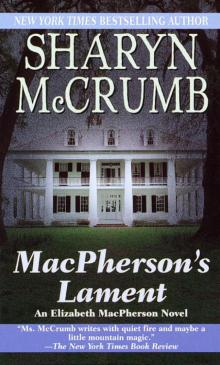 Elizabeth MacPherson 07 - MacPherson’s Lament
Elizabeth MacPherson 07 - MacPherson’s Lament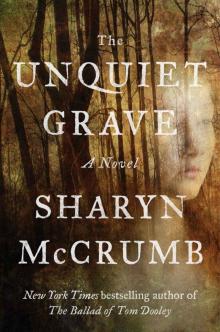 The Unquiet Grave: A Novel
The Unquiet Grave: A Novel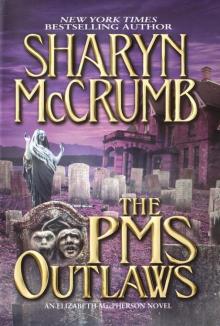 The PMS Outlaws: An Elizabeth MacPherson Novel
The PMS Outlaws: An Elizabeth MacPherson Novel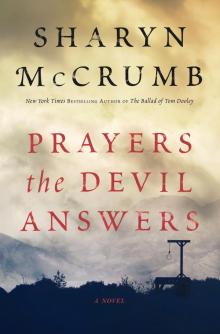 Prayers the Devil Answers
Prayers the Devil Answers Paying the Piper
Paying the Piper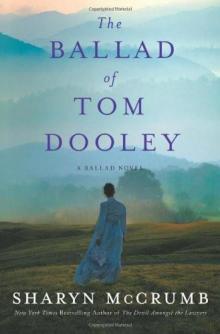 The Ballad of Tom Dooley: A Ballad Novel
The Ballad of Tom Dooley: A Ballad Novel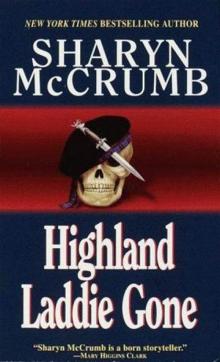 Highland Laddie Gone
Highland Laddie Gone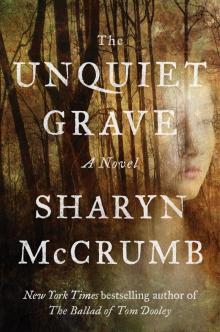 The Unquiet Grave
The Unquiet Grave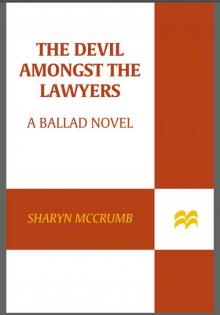 The Devil Amongst the Lawyers
The Devil Amongst the Lawyers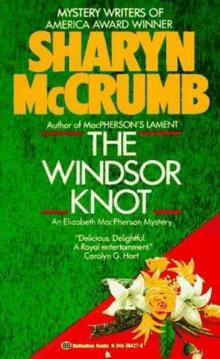 The Windsor Knot
The Windsor Knot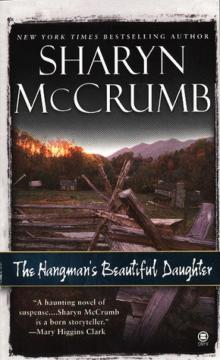 The Hangman's Beautiful Daughter
The Hangman's Beautiful Daughter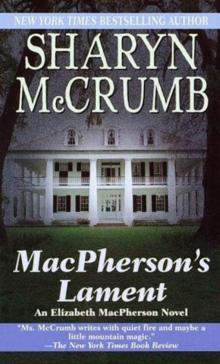 MacPherson's Lament
MacPherson's Lament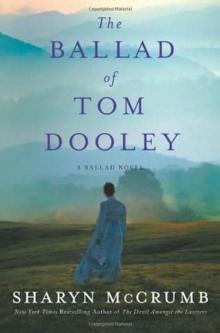 The Ballad of Tom Dooley
The Ballad of Tom Dooley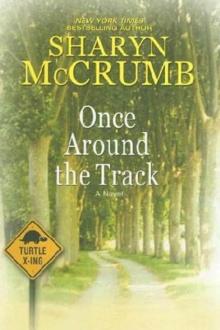 Once Around the Track
Once Around the Track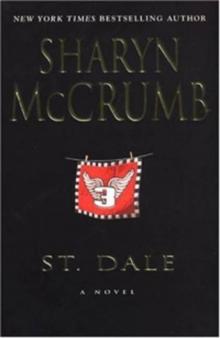 St. Dale
St. Dale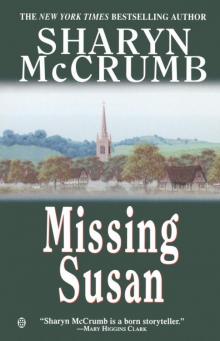 Elizabeth MacPherson 06 - Missing Susan
Elizabeth MacPherson 06 - Missing Susan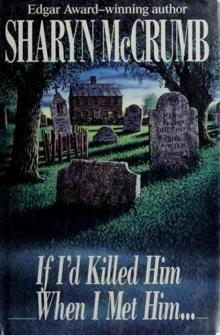 If I'd Killed Him When I Met Him…
If I'd Killed Him When I Met Him…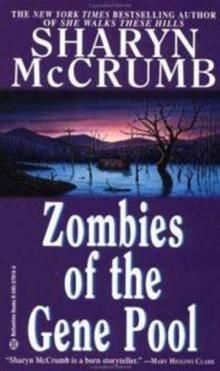 Zombies of the Gene Pool
Zombies of the Gene Pool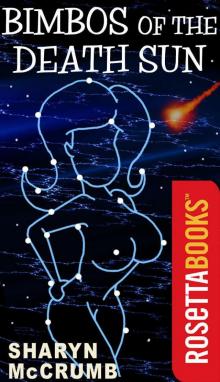 Bimbos of the Death Sun
Bimbos of the Death Sun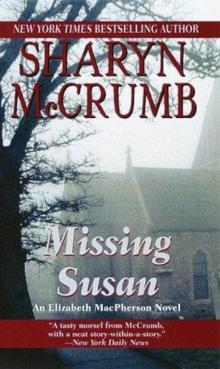 Missing Susan
Missing Susan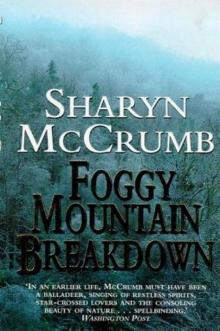 Foggy Mountain Breakdown and Other Stories
Foggy Mountain Breakdown and Other Stories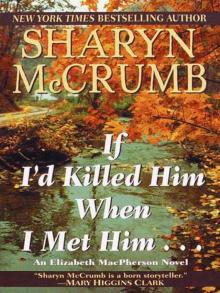 If I'd Killed Him When I Met Him
If I'd Killed Him When I Met Him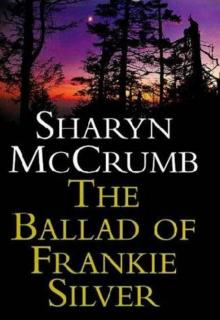 The Ballad of Frankie Silver
The Ballad of Frankie Silver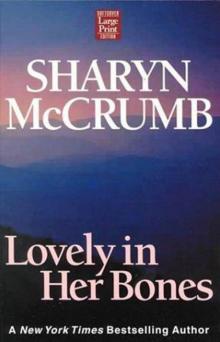 Lovely In Her Bones
Lovely In Her Bones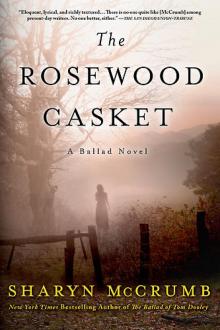 The Rosewood Casket
The Rosewood Casket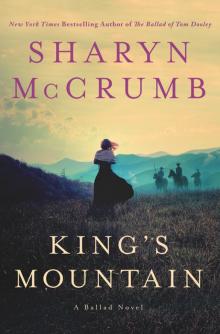 King's Mountain
King's Mountain